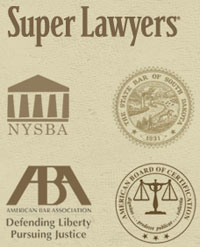In North Dakota one can give legal notice by mail to a deceased individual, even though he long ago went to that great oil patch in the sky. It is something out of a Charles Dicken’s novel. You can communicate and give notice to the dead. A landowner seeking to claim mineral interests may recover the deceased’s mineral interests by giving notice by US mail to an address long ago abandoned — and legally so, according to the Dormant Mineral Act.
The North Dakota Supreme Court, in ruling on the Dormant Mineral Act, stated that “…no reasonable inquiry was required where the surface owner mailed the notice of lapse to the mineral interest owners’ address which was of record in 2007, even though the mineral interest owners had died in 1980 and 1999, respectively.” When an individual who owned mineral interests in North Dakota dies, they and their heirs may be out of luck if death never kept up the “current address” in the county recorder’s office.
The Supreme Court in an important recent case called Capps also stated, “…the address of record need not be the mineral interest owner’s correct address for the mailing of the notice of lapse to satisfy the statutory requirement.” In other words, a landowner may serve a notice to recover mineral interests by US mail when mailed to the deceased’s last address in the records and thereby obtain minerals formerly owned by the deceased.
Both the legislature and the courts are attempting to make it easier for surface owners to clear title and reclaim lost mineral rights. The Supreme Court in Capps held that “this Court made it clear that when the mineral interest owners of record are deceased, the notice must still be mailed to the address of the deceased owners of record.” In my practice I have done this. The postman must think I am nuts. This rule derives from the intent to encourage mineral development and extraction.
The Court ruled that the surface owner was not required to conduct a reasonable inquiry into an actual address of a mineral owner even when the owner knew they were deceased. The Court determined that it was immaterial whether the surface owner had actual knowledge of the death of the party notified by mail the party who was the record owner of the mineral interests and the person to whom the statutory notices had been mailed. The Court stated that any heirs of the deceased would have received notice if the deceased had recorded notice of their current addresses. The Court also held that the constitutional safeguards of due process and adequate notice do not apply to the non-litigation Dormant Mineral Act used by the landowners in the Capps case.
The Capps case illustrates the growing body of law that makes it easier to develop and reclaim mineral rights.
David Ganje of Ganje Law Offices practices in the area of natural resources, environmental and commercial law in South Dakota and North Dakota. View the original article at the Bismarck Tribune – Brakken Breakout





